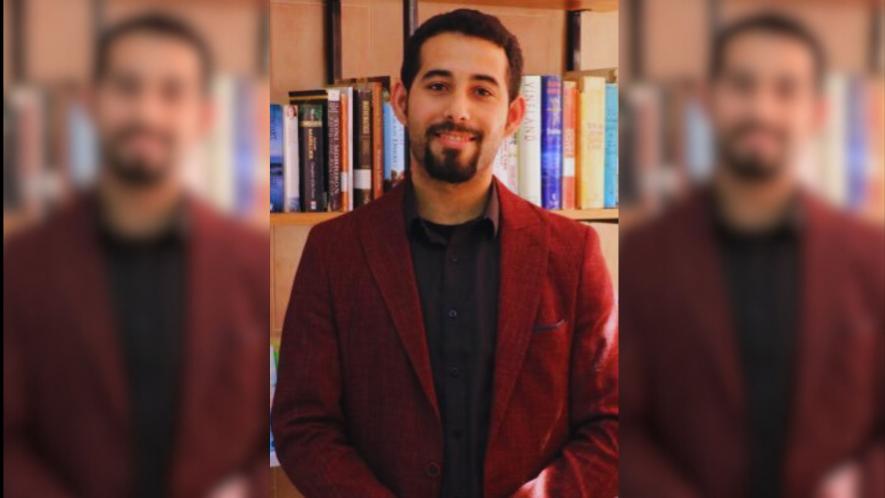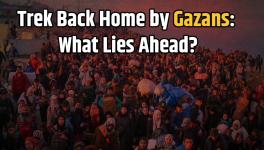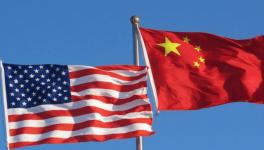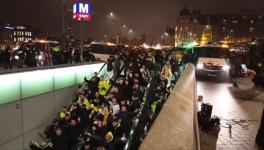Israeli Forces Arrest Palestinian Poet Mosab Abu Toha While Leaving Gaza

Image Courtesy: Twitter/@TohaMosab
Delhi: In a disturbing turn of events, Mosab Abu Toha, an award-winning Palestinian poet and author, was recently arrested by Israeli forces while attempting to leave Gaza. The news has sent shockwaves throughout the literary community, as Abu Toha was a regular contributor to The New Yorker and a respected voice in the world of poetry.
His current whereabouts are unknown, The New Yorker published on its website on November 20. This has led many to fear for his safety and well-being, as expressed on social media. This situation highlights the ongoing turmoil and conflict in the region where thousands have been killed by Israeli forces and airstrikes.
On Sunday, the poet, who is a father of three, was arrested along with other Palestinian men at an Israeli military checkpoint while on his way from north to south Gaza towards the Rafah crossing point. In the process, he was separated from his family. This happened despite US officials assuring him that he and his family would be allowed to cross into Egypt, given that one of his children is an American citizen, the Guardian reported.
The American Embassy sent Abu Toha and his family to go through the Rafah crossing, according to the poet’s brother, Hamza, who posted on social media. He added that the family has not heard from Abu Toha yet.
Diana Buttu, a friend of Abu Toha and Palestinian-Canadian lawyer, told the Guardian, “His son, who was born in America, was cleared to be evacuated a couple of weeks ago, but Mosab’s name was not on the list.”
“Eventually, they got his name and his wife’s name and the other kids on the list, and they were waiting to get out when it was safe,” Buttu said. According to Buttu, during their attempt to evacuate from the north to the south, they were halted at a checkpoint along with other people. The army detained Abu Toha along with 200 other men, leaving his wife with no news of his whereabouts since then.
Both the US state department and Israel Defense Forces (IDF) have not responded to any media publications on this issue.
Abu Toha and his family sought refuge in Jabalia after hearing that their home in Beit Lahia had been bombed. In a New Yorker article published on November 6, he recounted his attempt to retrieve something from his small book collection by cycling to the house. Sadly, he found nothing but debris, and the smell of explosions lingered in the air. “Now I sit in my temporary house in the Jabalia camp, waiting for a ceasefire. I feel like I am in a cage. I’m being killed every day with my people," the author wrote.
Abu Toha had been writing in the New Yorker magazine about his experiences under bombardment in Jabalia refugee camp in northern Gaza.
A collection of his poetry published in English in the US was a finalist in the National Book Critics Circle award and won an American Book award this year. He is also the founder of the Edward Said Library, which is Gaza's first English-language library.
PEN International, the global association of writers, said Monday that it is “deeply concerned” about Abu Toha. “We join calls demanding to know his whereabouts and the reasons for his detention,” PEN International said on social media platform X. The New Yorker also said that it is joining other organisations in "calling for his safe return".
The New York Review of Books posted about Abu Toha's reported detention on X, noting that “in May we published his poem “What a Gazan Should Do During an Israeli Air Strike.”
US-based independent publisher City Lights Book also took to X saying, "We are calling for the international community to demand the release of Mosab Abu Toha, and all hostages and prisoners in Gaza and Israel." City Lights published his award-winning debut collection of poems.
Get the latest reports & analysis with people's perspective on Protests, movements & deep analytical videos, discussions of the current affairs in your Telegram app. Subscribe to NewsClick's Telegram channel & get Real-Time updates on stories, as they get published on our website.






















